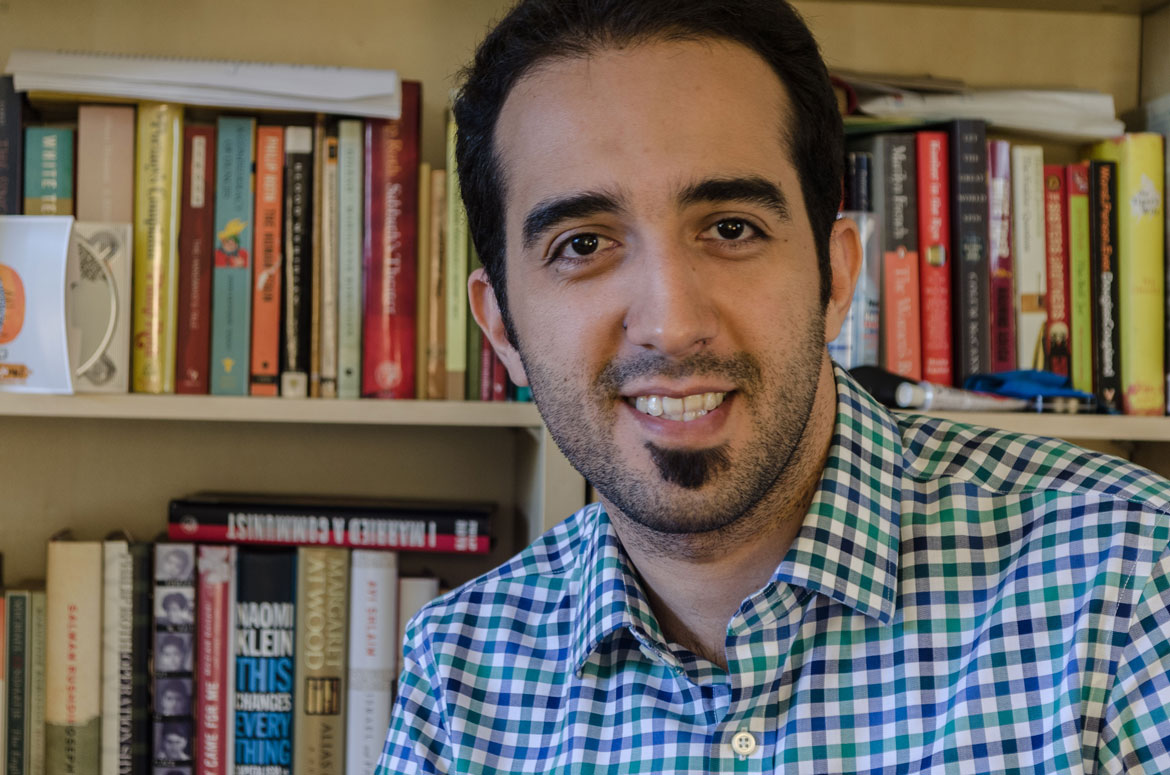
Amir Khadem, Governor General Gold Medal recipient
Amir Khadem chose Canada - and specifically, the University of Alberta - because as an Iranian citizen he noticed how Canadian society at large accommodates cultural differences, and the Transnational and Comparative Literatures program in the Department of Modern Languages and Cultural Studies offered the freedom to work on what interested him.
"It was the ideal home for me," says Khadem, who last month was awarded the Governor General's Gold Medal, the University of Alberta's highest honour for academic excellence bestowed upon graduating doctoral students.
Although initially enrolled in engineering in Tehran, Iran, it was in the final two years of his undergrad program that he realized that literature was his calling.
Khadem's graduate journey started with a question. How do contemporary global communities deal with catastrophic traumas, like war and revolution, using literature as a vehicle to narrate memory? His doctoral dissertation - "Endemic Pains and Pandemic Traumas: The Narrative Construction of Public Memory in Iran, Palestine, and the United States" - is the realization of this journey.
"The goal was to explain how a traumatic social event is transformed from raw memories and feelings into articulate works of literature," says Khadem. "A quick look around us, or a glance at the topics covered in daily news, gives us reason to ask how so many histories of painful incidents around the globe are recalled, how some of them are easily overshadowed by others, how some are projected on a global frame but some others are only perceived as minor local events, and how some are forgotten as soon as the next news cycle comes up."
Although Khadem's research scope was broad - encompassing texts from the Middle East as well as the United States - what surprised him most was the literature penned by American soldiers, in particular veterans of the recent wars in Iraq and Afghanistan. Expecting these voices to be "colonialist and apologetic of the wars," instead he discovered that many of them were sympathetic toward those whose lives had been disrupted by the American invasions.
"They were mostly men, in their 30s and early 40s, who used to be young idealist soldiers going to wars with disastrous outcomes," he says. "Now, [they are] reflecting back on their own experiences, and the fact that these veteran writers acknowledge such pains places them as traumatizers who are now facing their own traumas."
His supervisor, comparative literature professor Jerry Varsava, says Khadem's doctoral research presents a "highly original approach" to the study of trauma, generating "nuanced and illuminating readings of contemporary Middle-Eastern trauma fictions." Varsava expects great things of Khadem, who now works as an Andrew W. Mellon postdoctoral fellow at the University of Toronto's Jackman Humanities Institute. In addition to his teaching duties in the Department of Near and Middle Eastern Civilizations, Khadem is reworking his dissertation for publication as a book in the near future.
He says receiving the Governor General's Gold Medal was an unbelievable honour, one that he would not "dare to imagine receiving." He is quick to credit Varsava, his "brilliant thesis adviser," as well as professors Albert Braz and Lahoucine Ouzgane - his doctoral committee members - for their support. "They both meticulously read my work, offered honest criticism and never ceased to hold a high standard for me," says Khadem.
The literary scholar offers a final word of advice for incoming doctoral students: "Be a ruthless editor of your own work," he says. "And also, be careful not to develop an addiction to caffeine!"